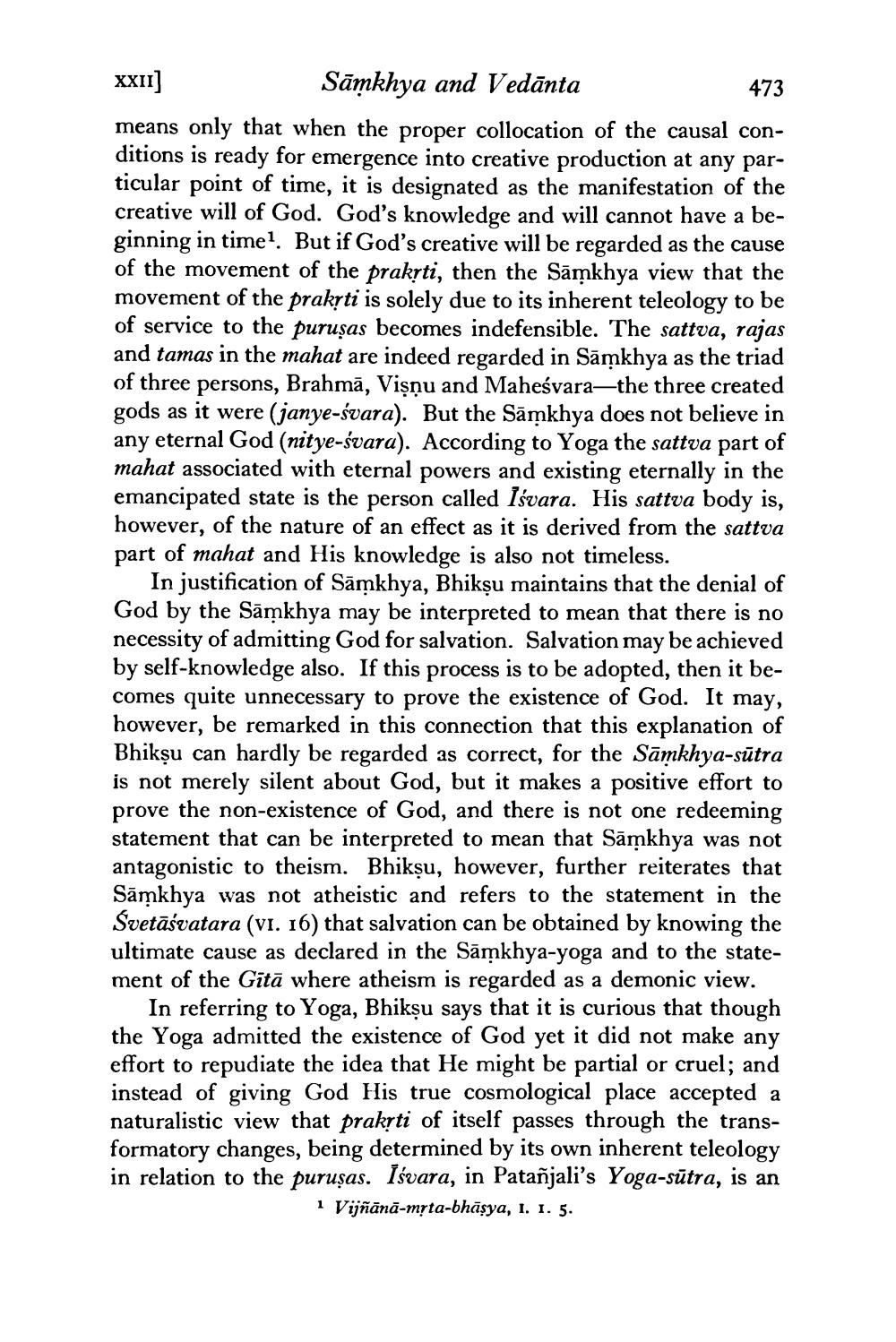________________
XXII]
Samkhya and Vedānta
473
means only that when the proper collocation of the causal conditions is ready for emergence into creative production at any particular point of time, it is designated as the manifestation of the creative will of God. God's knowledge and will cannot have a beginning in time1. But if God's creative will be regarded as the cause of the movement of the prakṛti, then the Samkhya view that the movement of the prakṛti is solely due to its inherent teleology to be of service to the purusas becomes indefensible. The sattva, rajas and tamas in the mahat are indeed regarded in Samkhya as the triad of three persons, Brahmā, Viṣṇu and Maheśvara-the three created gods as it were (janye-svara). But the Samkhya does not believe in any eternal God (nitye-svara). According to Yoga the sattva part of mahat associated with eternal powers and existing eternally in the emancipated state is the person called Isvara. His sattva body is, however, of the nature of an effect as it is derived from the sattva part of mahat and His knowledge is also not timeless.
In justification of Samkhya, Bhikṣu maintains that the denial of God by the Samkhya may be interpreted to mean that there is no necessity of admitting God for salvation. Salvation may be achieved by self-knowledge also. If this process is to be adopted, then it becomes quite unnecessary to prove the existence of God. It may, however, be remarked in this connection that this explanation of Bhikṣu can hardly be regarded as correct, for the Samkhya-sūtra is not merely silent about God, but it makes a positive effort to prove the non-existence of God, and there is not one redeeming statement that can be interpreted to mean that Samkhya was not antagonistic to theism. Bhiksu, however, further reiterates that Samkhya was not atheistic and refers to the statement in the Svetasvatara (VI. 16) that salvation can be obtained by knowing the ultimate cause as declared in the Samkhya-yoga and to the statement of the Gītā where atheism is regarded as a demonic view.
In referring to Yoga, Bhiksu says that it is curious that though the Yoga admitted the existence of God yet it did not make any effort to repudiate the idea that He might be partial or cruel; and instead of giving God His true cosmological place accepted a naturalistic view that prakṛrti of itself passes through the transformatory changes, being determined by its own inherent teleology in relation to the purusas. Isvara, in Patañjali's Yoga-sūtra, is an 1 Vijñānā-mṛta-bhāṣya, I. 1. 5.




